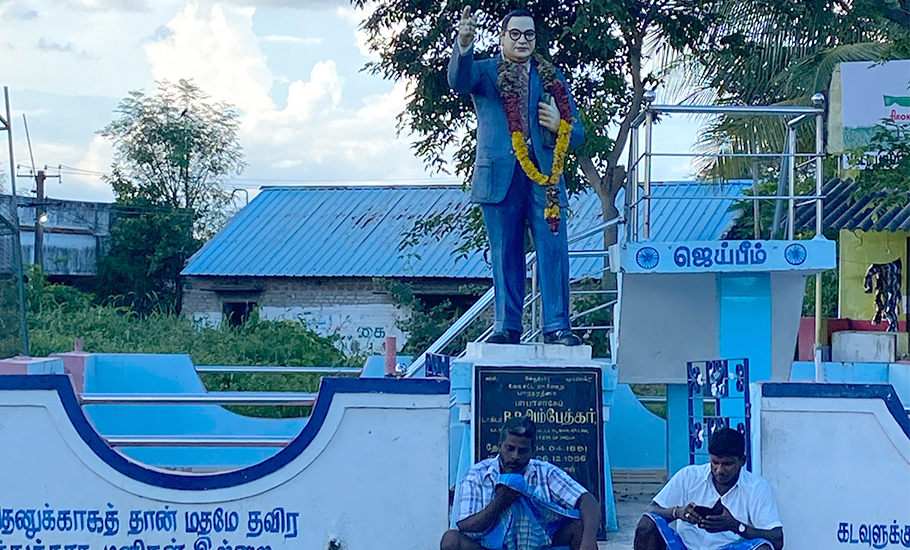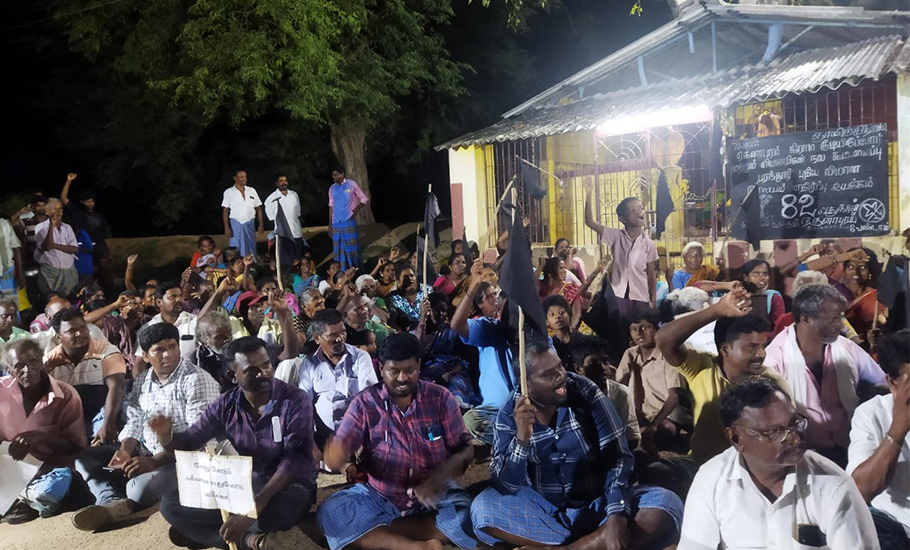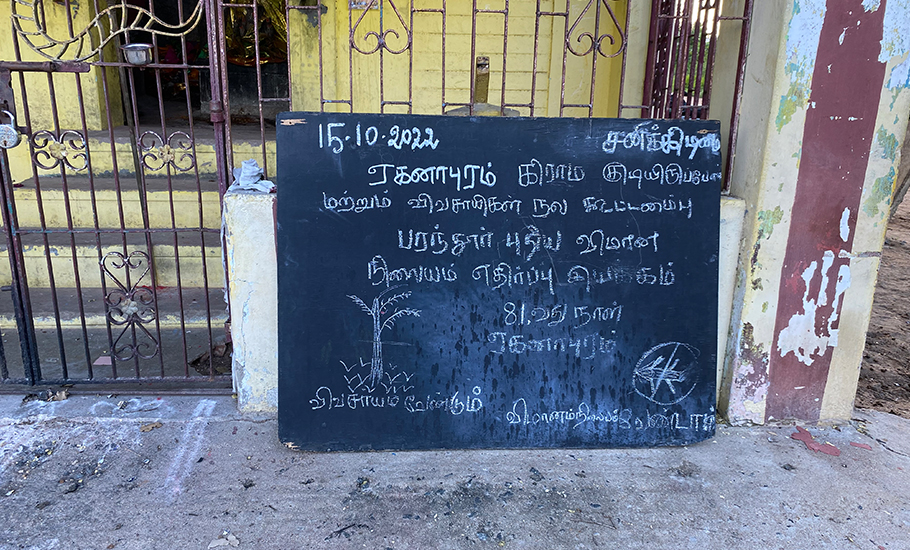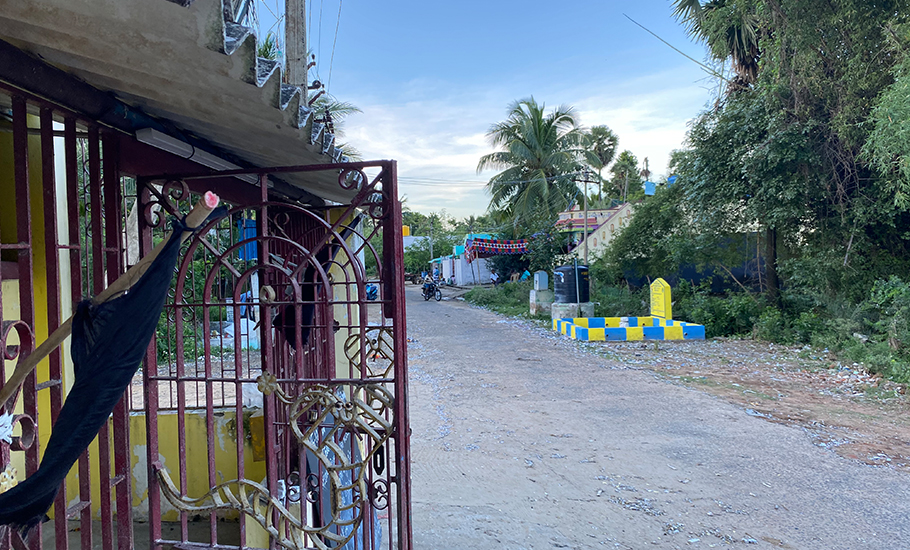
- Home
- India
- World
- Premium
- THE FEDERAL SPECIAL
- Analysis
- States
- Perspective
- Videos
- Sports
- Education
- Entertainment
- Elections
- Features
- Health
- Business
- Series
- In memoriam: Sheikh Mujibur Rahman
- Bishnoi's Men
- NEET TANGLE
- Economy Series
- Earth Day
- Kashmir’s Frozen Turbulence
- India@75
- The legend of Ramjanmabhoomi
- Liberalisation@30
- How to tame a dragon
- Celebrating biodiversity
- Farm Matters
- 50 days of solitude
- Bringing Migrants Home
- Budget 2020
- Jharkhand Votes
- The Federal Investigates
- The Federal Impact
- Vanishing Sand
- Gandhi @ 150
- Andhra Today
- Field report
- Operation Gulmarg
- Pandemic @1 Mn in India
- The Federal Year-End
- The Zero Year
- Science
- Brand studio
- Newsletter
- Elections 2024
- Events
- Home
- IndiaIndia
- World
- Analysis
- StatesStates
- PerspectivePerspective
- VideosVideos
- Sports
- Education
- Entertainment
- ElectionsElections
- Features
- Health
- BusinessBusiness
- Premium
- Loading...
Premium - Events

How protest against a new airport blurred caste lines in Tamil Nadu–or has it?

It is not a usual journey when 70-year-old Vanathi makes her way from her home to visit her neighbour Dharani across the street in Eknapuram village in Tamil Nadu’s Kancheepuram district. At one point between their homes stands a statue of Dr BR Ambedkar that until recently was kept under iron grilles to protect it from caste Hindu vandals. In making her way to Dharani’s house, Vanathi...
It is not a usual journey when 70-year-old Vanathi makes her way from her home to visit her neighbour Dharani across the street in Eknapuram village in Tamil Nadu’s Kancheepuram district. At one point between their homes stands a statue of Dr BR Ambedkar that until recently was kept under iron grilles to protect it from caste Hindu vandals.
In making her way to Dharani’s house, Vanathi is also crossing a much visible divide that for decades has kept Dalits like her and Caste Hindus – in this case Vanniyars who are considered above Dalits in the caste hierarchy – at a distance from each other despite being neighbours for decades.
Vanathi recently met Dharani, a 67-year-old Vanniyar woman, at a protest demonstration against the proposed second airport for Chennai in Parandur village. Nearly 70 km away from the capital city, Parandur and 12 other neighbouring villages, including Vanathi’s village Ekanapuram, have been earmarked for the new greenfield airport on 4,791 acres of land (1,939 hectares), following which protests broke out nearly three months ago. Villagers have been urging the government to shift the location of the project.
The new airport, according to Chief Minister MK Stalin, is expected to be built at a cost of Rs 20,000 crore with a capacity to handle 100 million passengers every year. While the villagers refuse to part with their land and have been staging protests for more than 80 days now, the protest sites have also created a new kind of meeting place for Dalits and caste Hindus, who under normal circumstances prefer to keep their distance.

Like most other districts in the state, Kancheepuram district too has a history of clashes between Dalits and Caste Hindus. Between 2018 and 2021, eight villages in Kancheepuram reported atrocities against the Scheduled Castes.
The proposed airport, however, seems to have bridged that gap somewhat. The caste Hindus who would usually maintain a distance from the Dalit villagers are now coordinating with them on a daily basis. “Those who would not allow us inside their streets earlier are now sitting with us in protest against the new project,” shares Ilayaraja, a Dalit villager from Eknapuram.
The 45-year-old tells The Federal that even Dr Ambedkar, who was earlier considered only a Dalit icon, has now found ‘acceptance’ among Vanniyars once they came to know about the prospect of losing their land to the airport. In a symbolic gesture after a sit-in a few days ago, Vanniyars and Dalits stood next to each other and presented a petition to Ambedkar’s statue against the airport project. With that, the iron grille enclosure erected to protect the statue from caste Hindu vandals was also removed. “Now you can see the Ambedkar statue without any iron grilles,” says a smiling Ilayaraja.
Vanathi too had not seen such interaction across the caste divide earlier. This is a completely new experience for her. But this changed attitude of caste Hindus is not enough to put her mind at rest when there is so much more at stake – her entire existence and livelihood.
Since August this year, she has been spending sleepless nights worrying about the future. With her husband dead years ago and no children to take care of her, Vanathi works in farms to manage two square meals a day. On a good day, she manages to earn Rs 300 but there are days when she has to make do with just Rs 150. There are also days when she can’t go to work due to age-related ailments, not to mention days when she can’t find work.
“If the work is too far away from Ekanapuram, villagers do not take me with them because I am too old. But on such days, they give me food because they have known me for decades,” Vanathi tells The Federal. “Is it possible for me to find this bonding in a new place?” she asks.

The fear of relocation has been looming over Vanathi’s mind. She is worried to go and make a new home at her age among strangers. “Can you even imagine living in a different place without the people you know for generations around you. Is the airport more important than our cattle, farmlands and neighbours? asks Vanathi.
Returning from farmwork on Sunday (October 16) evening, the 70-year-old looked visibly disturbed even as villagers – young and old – assembled at the usual protest site. It was the 82nd day of protests. Not yet ready to give up on her village, Vanathi too has been a part of the protests.
According to Ilayaraja, people of all the 13 villages have been staging protests in their respective villages every day between 7pm and 11pm since July 26. The villagers have also passed resolutions in their Gram Sabha meetings twice against the setting up of the airport.
While the land-owning farmers too fear the loss of livelihood, the landless Dalits in Eknapuram living adjacent to the main road feel that their situation would be worse than the landholders.
“We are landless farm workers and are mostly dependent on the farmers. At least, they would get some sort of compensation, if their land gets acquired. But the areas we live in are categorised as ‘poramboke’. So, we will be given nothing as per the government data,” says Ilayaraja.
According to government data, of the 4,791 acres of land, about 1,317 acres is poramboke or common land (not assessed to revenue records and can be considered government land).
“The government claims poramboke land are areas occupied by residents for generations but without government patta (land deed). Unlike in the cities, villagers don’t rush to get patta since they are not going to sell the land to anyone else. So, poramboke land ideally belongs to people who have been living on it for generations,” says Janardhanan, an Eknapuram resident.
Slightly better off than his Dalit counterparts, Subramani, a Vanniyar landowner who works in a private factory in Parandur, is afraid of losing his family land in Eknapuram. For his family, farming is the only source of livelihood and they would not be able to survive without it. “We are not saying that the airport is unnecessary. But don’t build it at the cost of farmers’ livelihood,” 33-year-old Subramani tells The Federal.
Subramani, who is a fifth-generation inhabitant of Eknapuram, says he was the only person in the family to have completed Class 10. “It took five generations for someone from the family to pass Class 10… all we know is farming. Even this factory work is kind of daily-wage labour. I work at the factory when there is no farm work. Farming is our main source of income. Only by investing in farming, we believe we would be able to send our future generations to college for higher education,” he says.
Twenty-eight-year old Kowsik agrees with Subramani.

“Since we have got some exposure, we want to educate our children further. Taking our land and relocating us to an unknown place would mean undoing all that we managed to achieve in several decades and make us struggle for two square meals a day,” says Kowsik.
But apart from immediate livelihood and displacement concerns, there is more at stake. Environment activists working on the ground warn the project would only lead to floods in Chennai. Out of the 4,791 acres of land in and around Parandur in Kancheepuram district identified by the Airport Authority of India for the new project, 2,446.79 acres of that are wetlands, 1,317 acres are Poramboke land (as mentioned above) and 799 acres are dry land.
According to a report released by Poovulagin Nanbargal, an NGO, the proposed airport would obstruct the flow of the 43-km Kamban canal that is the source of 85 lakes in and around the village. G Sundarrajan of Poovulagin Nanbargal says Ekanapuram would be the worst sufferer. While the size of the rest of the villages would shrink, Ekanapuram would be completely wiped off the map after parting with 650 acres of land, 610 houses and several water bodies and canals. Apart from pointing out the procedural lapses, Sundarrajan and his organisation have also demanded to make the environmental assessment report public.
But the government does not seem to care, says Muthukumar, another villager. “Instead they are putting pressure in various ways. They have deployed a huge police force in and around all the villages. We cannot enter our own village after 10pm.”
Recently, he adds, a father took his daughter to a medical clinic outside the village and while returning home around 10.30pm, the police stopped them at the checkpost set up outside the village and refused to allow them without their Aadhaar ID proof. “Why would anybody take their Aadhaar card to visit a hospital and to return home?”
Muthukumar said residents of all 13 villages are facing similar pressure tactics. “We have been here for decades and the police officials are the ones who are new. But they demand proof of address to allow us inside our own village. Look at our fate,” he says.
Frustrated, the villagers had planned to take their protest to the Tamil Nadu Assembly on October 17, but the protest march was called off on October 15 after Public Works Department Minister EV Velu, Industries Minister Thangam Thenarasu, and MSME Minister TM Anbarasan told the villagers, represented by eight farmers, that their concerns over potential damage to Kamban Canal and their demand to save their habitats by changing the alignment of the airport will be taken into consideration.
The ministers reassured the villagers that the government is committed to providing adequate compensation – 3.5 times the market rate and a job to one person in each family — for those giving their land for the project.
But the protesting villagers find it hard to believe government promises.
“All of us have seen what happened in the case of the Ariyalur Government Cement Factory. The people whose land was taken for setting up the factory several decades ago are yet to get the compensation and the promised jobs. Their grandchildren are still petitioning the ministers and government officials for a job,” says Janarthanan, a landowner.

While the land-owning farmers too fear the loss of livelihood, the landless Dalits in Eknapuram living adjacent to the main road feel that their situation would be worse than the landholders.
Political promises, he adds, often fail. “We are not ready to be fooled by any such assurances.”
For now, the only thing Janarthanan is ready to believe in is the fighting spirit of the people and the resistance they have been putting up unitedly across caste divides.
But will this new-found bonhomie last?
“As long as it does… who knows,” says a hopeful Ilayaraja.
